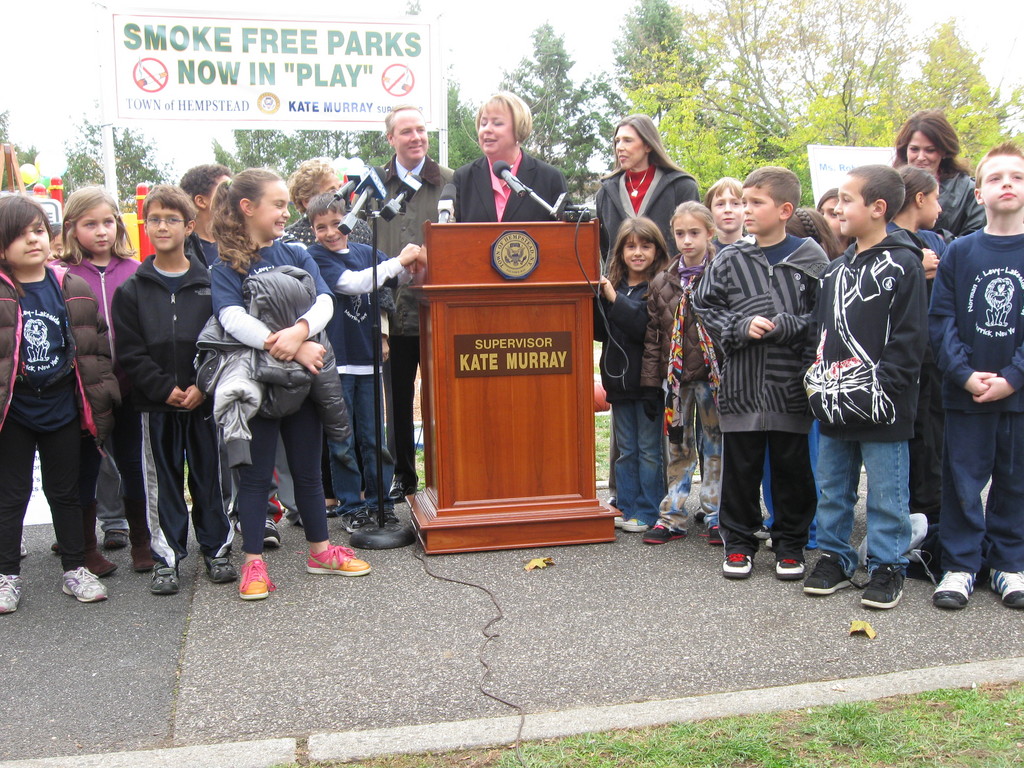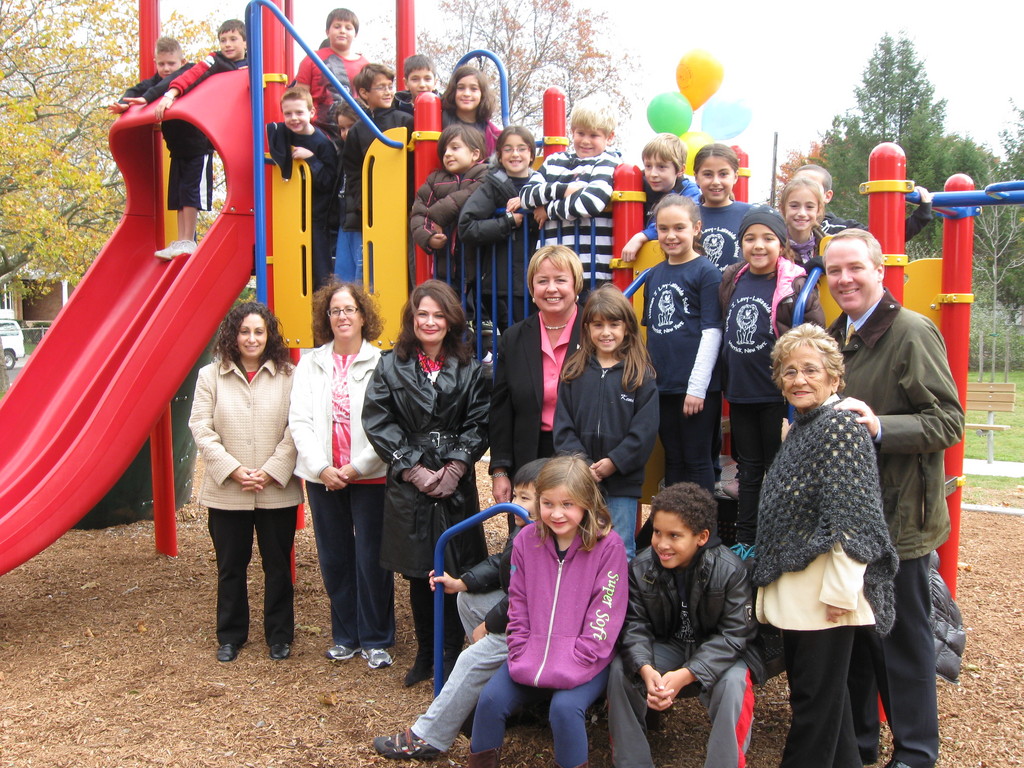Town seeks to ban smoking in parks
Town of Hempstead Supervisor Kate Murray and Councilwoman Angie Cullin joined Ilene Robinson’s third-grade class from Levy-Lakeside Elementary School in Merrick on Wednesday to announce a proposal to designate the town’s 100 parks “smoke-free.”
The announcement was made at a news conference at Julian Lane Park in Merrick.
The proposal, Murray said, will be discussed at a public hearing at the Town Board’s next meeting on Nov. 23, at which, according to Murray, the board will “talk about the legislation and enact it.” The new local law would prohibit smoking at the town’s 100 parks, except in designated areas, which Murray said will be away from playing fields, tennis courts, playgrounds, bleachers and all other areas that would subject patrons to secondhand smoke.
“Restricting smoking at these facilities certainly makes good common sense,” Murray said. “It protects our children and all others from dangerous secondhand smoke.”
Previously, Murray and Cullin met with the Tobacco Action Coalition to discuss making parks and beaches healthier. Carol Meschkow of the Tobacco Action Coalition spoke at town board meetings on the dangers of second-hand smoke, and subsequent conversations resulted in the smoke-free parks proposal.
"Reducing tobacco use is an effective investment for our next generation,” Meschkow said. “Supervisor Murray and the Town of Hempstead have clearly placed their children's future as a number one priority, and we couldn't be more pleased."
According to a town release, 25,000 adults in New York state die from smoking each year, and 21,000 young people under age 18 become daily smokers annually. In addition, Murray said, poison control centers across the country received 8,000 reports this past year of children swallowing cigarette butts.
Surrounding Murray at the lectern was Robinson’s third-grade class, along with Merrick Assistant Superintendent Christine Grucci.
The class was extended an invitation from the town to attend the news conference because of the environmental work that Robinson’s students have done over the years.

 50.0°,
Overcast
50.0°,
Overcast 







